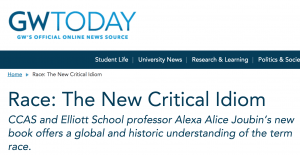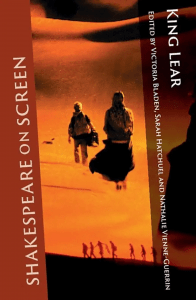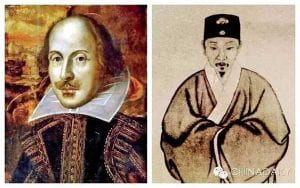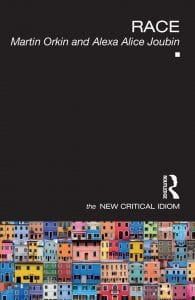 Alexa Alice Joubin’s new book offers a global and historic understanding of the term race. The book argues that the concept of race is entangled with empirical knowledge, misinformation and ideology that seek to justify and sustain particular beliefs and is often articulated in the form of stereotypes that condense perceived behavioral patterns with biological features. Race becomes notable when groups have come into contact with other groups. ...continue reading "Book Launch of Race"
Alexa Alice Joubin’s new book offers a global and historic understanding of the term race. The book argues that the concept of race is entangled with empirical knowledge, misinformation and ideology that seek to justify and sustain particular beliefs and is often articulated in the form of stereotypes that condense perceived behavioral patterns with biological features. Race becomes notable when groups have come into contact with other groups. ...continue reading "Book Launch of Race"
Ethics of Performative Citations of Shakespeare
 Global Shakespeare can be studied through two interrelated concepts: performance as an act of citation and the ethics of citation. Appropriating the classics carries strong ethical implications. A crucial, ethical component of appropriation is one’s willingness to listen to and be subjected to the demands of others. These metaphorical citations create moments of self and mutual recognition. Seeing the others within is the first step toward seeing oneself in others’ eyes. The act of citation is founded upon the premise of one’s subjectivity, the subject who speaks, and the other’s voice that one is channeling, misrepresenting, or appropriating. ...continue reading "Ethics of Performative Citations of Shakespeare"
Global Shakespeare can be studied through two interrelated concepts: performance as an act of citation and the ethics of citation. Appropriating the classics carries strong ethical implications. A crucial, ethical component of appropriation is one’s willingness to listen to and be subjected to the demands of others. These metaphorical citations create moments of self and mutual recognition. Seeing the others within is the first step toward seeing oneself in others’ eyes. The act of citation is founded upon the premise of one’s subjectivity, the subject who speaks, and the other’s voice that one is channeling, misrepresenting, or appropriating. ...continue reading "Ethics of Performative Citations of Shakespeare"
Teaching King Lear in a Global Context
 How might we engage with the "essence" of King Lear, or "Learness," in a networked culture? Juxtaposing the clips of the division-of-the-kingdom scene from different films allows us to reexamine our perceived ethical burden to explain Lear’s problems away. The scene in Peter Brook’s 1971 film is dominated by close-ups of Lear and other characters, framing Paul Scofield’s Lear as a solemn statue. Peter Brook’s 1962 RSC production and subsequent 1971 film of King Lear engages with the theme of ecocriticism through an apocalyptic mise-en-scène.
How might we engage with the "essence" of King Lear, or "Learness," in a networked culture? Juxtaposing the clips of the division-of-the-kingdom scene from different films allows us to reexamine our perceived ethical burden to explain Lear’s problems away. The scene in Peter Brook’s 1971 film is dominated by close-ups of Lear and other characters, framing Paul Scofield’s Lear as a solemn statue. Peter Brook’s 1962 RSC production and subsequent 1971 film of King Lear engages with the theme of ecocriticism through an apocalyptic mise-en-scène.
In contrast to Laurence Olivier’s Lear in Elliott’s 1983 film, who laughs off Cordelia’s initial response, Scofield’s Lear speaks methodically and remains stern throughout the scene, which ends with him calmly banishing Cordelia. Cordelia’s aside is cut, thereby diminishing the weight of a potentially revelatory moment as well as Cordelia’s self-discovery.
...continue reading "Teaching King Lear in a Global Context"
Performing Commemoration: The Cultural Politics of Locating Tang Xianzu and Shakespeare
 Cultural memory is actively constructed through embodied and political performances. Tang Xianzu and William Shakespeare, two “national poets” of unequal global stature, have recently become vehicles for British and Chinese cultural diplomacy and exchange during their quatercentenary in 2016. The culture of commemoration is a key factor in Tang’s and Shakespeare’s positions within world theatre. Performances of commemoration take a wide range of approaches from grass-root events to government-sponsored festivals. With a comparative scope that explores the afterlives of the two dramatists, this cluster of essays examines commemorative practices, the dynamics of artistic fame, comparability of different dramatic traditions, and transformations of performance styles in socio-historical contexts. ...continue reading "Performing Commemoration: The Cultural Politics of Locating Tang Xianzu and Shakespeare"
Cultural memory is actively constructed through embodied and political performances. Tang Xianzu and William Shakespeare, two “national poets” of unequal global stature, have recently become vehicles for British and Chinese cultural diplomacy and exchange during their quatercentenary in 2016. The culture of commemoration is a key factor in Tang’s and Shakespeare’s positions within world theatre. Performances of commemoration take a wide range of approaches from grass-root events to government-sponsored festivals. With a comparative scope that explores the afterlives of the two dramatists, this cluster of essays examines commemorative practices, the dynamics of artistic fame, comparability of different dramatic traditions, and transformations of performance styles in socio-historical contexts. ...continue reading "Performing Commemoration: The Cultural Politics of Locating Tang Xianzu and Shakespeare"
Ophelia Unbound

How does Ophelia become “unbound” through supralinguistic structures of spectacle and music especially in a transgender performance? With case studies of three Hamlet films: Haider (India, 2004), The King and the Clown (South Korea, 2005), and Prince of the Himalayas (Tibet, 2006), this article examines theatrical and cinematic presentations of Ophelia's double bind as an icon and a victim. ...continue reading "Ophelia Unbound"
Ethics of Global Shakespeare

The dialogues between Shakespeare and his modern interlocutors are driven by ethical claims and the use of Shakespeare for political expediency. While artists and critics alike gravitate toward inspirational narratives, there is the risk of selling out on art’s impact on social justice. Advertising trends—or cultural paratexts around performances—are one area where artists’ ethical claims are sometimes countered by marketing shortcuts especially in relation to presentations of racial and gender diversity. In some cases, what appear to be multiethnic performances based on the casts turn out to be aesthetically incoherent, while in other cases queerness is framed as a defining feature when a production does not actively engage with gender diversity.
Here are highlights of my paper delivered at the Shakespeare Society of South Africa conference on "Shakespeare and Social Justice" in Fugard Theatre, Cape Town, May 16-18, 2019. ...continue reading "Ethics of Global Shakespeare"
Race and the Epistemologies of Otherness
 Excerpted from chapter 5 of Race by Martin Orkin and Alexa Alice Joubin. New Critical idiom Sereis. London: Routledge, 2019, pp. 193-227. Full text available online
Excerpted from chapter 5 of Race by Martin Orkin and Alexa Alice Joubin. New Critical idiom Sereis. London: Routledge, 2019, pp. 193-227. Full text available online
When confronted with the unknown, many societies tend to transfer observations of unfamiliar phenomena onto their mental map of what is already known. Race as a category is entangled with empirical knowledge, misinformation, and ideology, all of which seek to justify and sustain particular beliefs. Knowledge about otherness is socially constructed. Knowledge of race results from taxonomical observations made for colonial, medical, bureaucratic, or other purposes such as political movements. ...continue reading "Race and the Epistemologies of Otherness"
Local and Global Myths in Shakespearean Performance
Local and Global Myths in Shakespearean Performance
Edited by Aneta Mancewicz and Alexa Alice Joubin
In the Reproducing Shakespeare series (ed. Tom Cartelli and Katherine Rowe)
Palgrave Macmillan, 2018
“Contradictory myths are the foundation to many conversations about Shakespeare today. We can better grasp the significance of globalShakespeare by understanding the cultural logic of the production and consumption of these myths—often articulated in the form of journalistic adoration of universal aesthetics.”
Full text of the Introduction: researchgate.net/profile/Alexa_Joubin
...continue reading "Local and Global Myths in Shakespearean Performance"
“To unpath’d waters, undream’d shores”: Shakespeare in the World
"Voodoo" Macbeth? Heir apparent of the Denmark Corporation in Manhattan (Hamlet 2000)? A pair of star-crossed lovers from feuding families who own competing food stalls in Singapore (Chicken Rice War). In the centuries since William Shakespeare's death, numerous stage and, more recently, film and television adaptations of his work have emerged to inspire, comfort, and provoke audiences in far-flung corners of the globe. As early as 1619, for example, Hamlet was performed in colonial Indonesia to entertain European expatriates. In 1845, U.S. Army officers staged Othello in Corpus Christi, Texas, as a distraction from the run-up to the Mexican-American War. Supported by the National Endowment for the Arts, the Alabama Shakespeare Festival toured its production of Macbeth to several key U.S. military bases in 2004. ...continue reading "“To unpath’d waters, undream’d shores”: Shakespeare in the World"
The Power of Arts: Censorship and Free Speech
Do artists have moral responsibilities to speak truth to power? Should art comment on or steer clear of politics? How might politics affect artistic creativity? Where do we draw the line?
 ...continue reading "The Power of Arts: Censorship and Free Speech"
...continue reading "The Power of Arts: Censorship and Free Speech"



